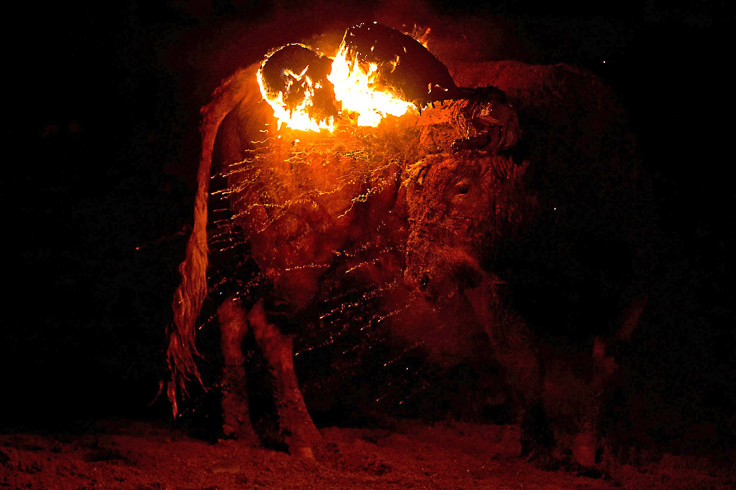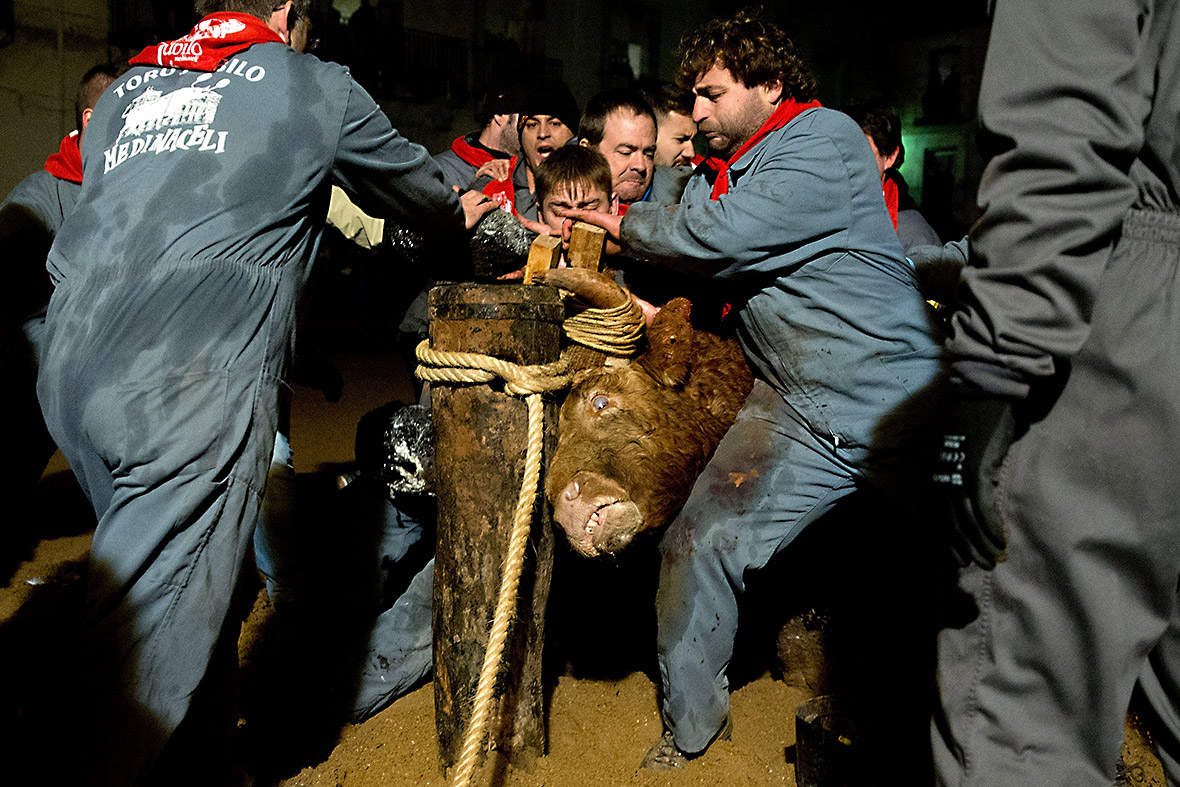Toro de Jubilo: Balls of Fire are Attached to a Bull's Horns in Medinaceli, Spain [PHOTO REPORT]
The highly controversial Toro de Jubilo fire bull festival took place in Medinaceli, Spain, this weekend.

In an ancient pagan tradition thought to date from the bronze age, a bull is tied to a post in the middle of the bull ring and balls of tar and pitch are attached to its horns and set alight.
Local men then take it in turns to taunt the anguished bull and get it to chase them. The bull is covered with a thick layer of mud to protect it from the burning liquid that rains onto its face and back.







Animal rights rights activists tried to stop this year's festival, attaching themselves to the post in the middle of the bull ring.
Festival supporters tried to stop them, and fights broke out. The police intervened, arresting some of the animal rights activists.
The protesters' attempts to stop the festival were in vain, merely delaying its start by an hour.



A bull named Islero was restrained by a group of men as a pole with two large torches on it was strapped to its horns.
A crowd cheered as young men taunted the animal, trying to get it to charge them. Once the balls of tar had been consumed by the flames, fireworks exploded around the bull.


To the people of Medinaceli, the festival is a culturally important link to the past that should be protected by Unesco.
People for the Ethical Treatment of Animals have called on Spanish authorities to ban the festival. Peta spokesman Ben Williamson said: "The fiery balls burn the bulls' horns, eyes and other parts, causing huge stress. The agony they must suffer is unimaginable."
© Copyright IBTimes 2025. All rights reserved.




















